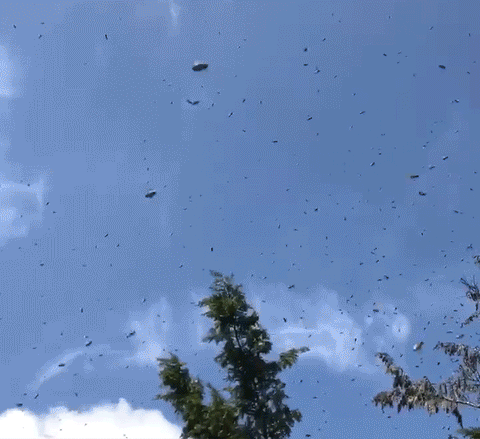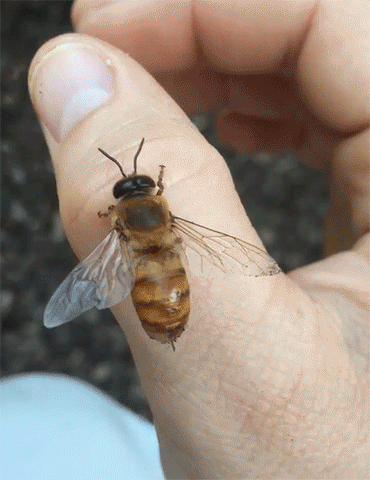Happy Earth Day from Mission Critical. Our logo is inspired by honeycomb as our founders are avid bee keepers. Bees also play an important part of the ecosystem so we are celebrating by sharing some interesting facts about bees.
The Importance of Clean Water
Bees need a clean reliable water source that is easy for them to access. Why? Fresh water is used for cooling the hive, decrystallizing honey and helping the Nurse Bees create Royal Jelly to feed the larvae. Bees can easily drown in water, so it’s crucial to provide a shallow water dish filled rocks or twigs where they can land.
The Illusive Queen
The Queen Bee, or “mother” bee, can lay up to 2,000 eggs a day. She has attendants who feed and clean her so she can focus on laying eggs. Her presence infuses and unites the hive as a single entity. While she is the only bee within the hive who lays eggs, she is not the “ruler” of the hive--a beehive operates as a single organism, making decisions collectively. She can be difficult to spot amongst her attendants but check her out below!
Awe-some Swarm


Swarming is the honeybee’s natural method for reproduction and expansion. It occurs when the older queen leaves an established hive with half of the bees to find a new location, leaving behind a new queen and the rest of the workers. Bees are at their most gentle when they swarm, as they have no hive to defend and are operating on trust and instinct that they will find another home. It is an awe-inspiring event!
Drones: Gentle Giants

Drones are the male Honeybee. Larger than the female worker bee and without a stinger, they are gentle giants whose bodies help warm the brood nest. While a drone’s primary focus is to mate with a queen, he is also the glue that connects all the colonies within the landscape, since drones are the only bee allowed into neighboring hives. Basically, they keep a pulse on what’s happening in the ‘hood!
Bees make a huge impact on the food we eat and the environment we see. So next time you're out on a hike and see a little honeybee, make sure to say thanks!










Comments (0)
Back to Blog